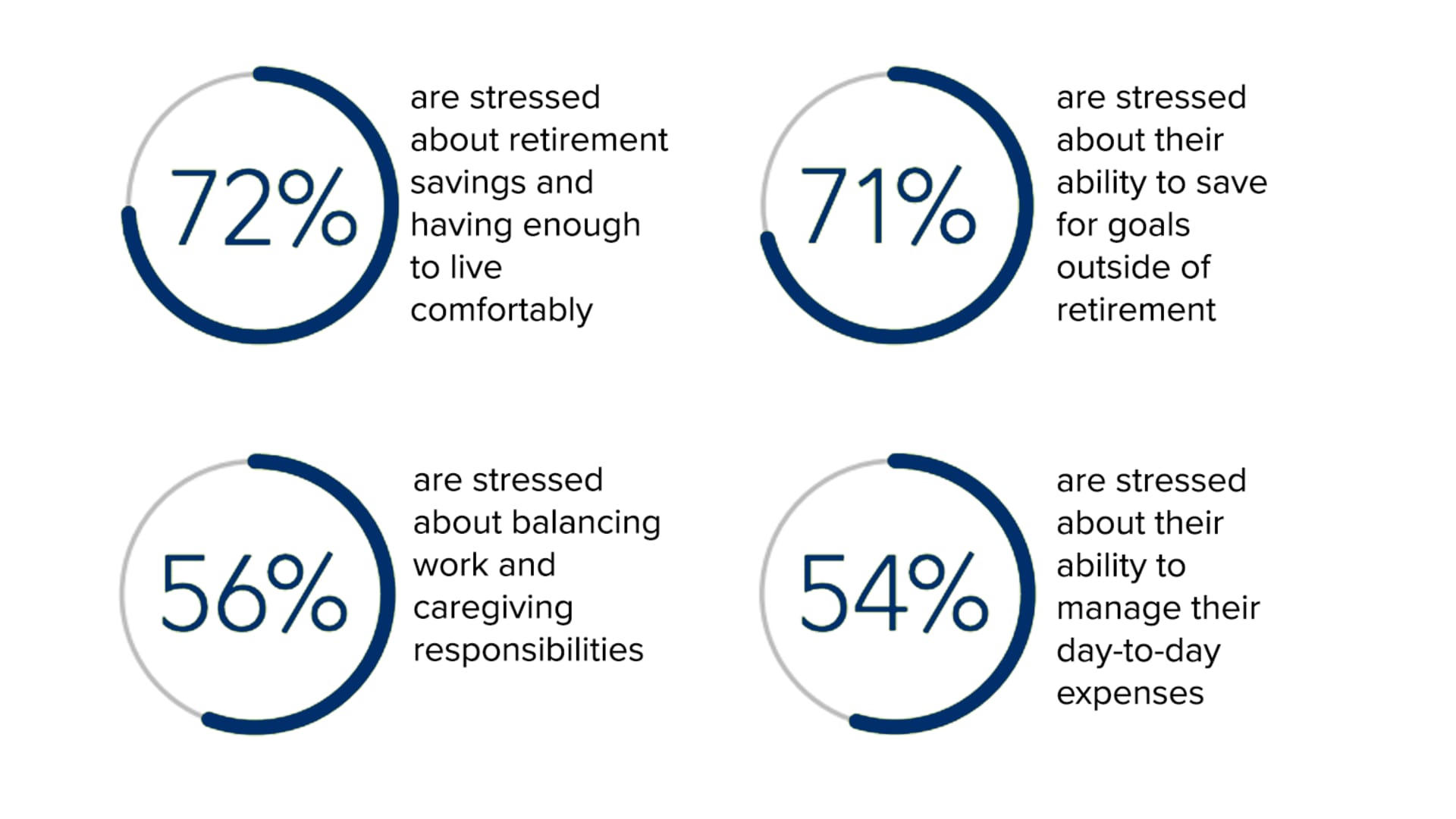
Financial anxiety for women is growing.
While studies have shown that women typically suffer from more money stress than men, the coronavirus pandemic has exacerbated the situation.
In fact, 79% of women report feeling weighed down by money and stress, up from 67% last fall, according to Fidelity Investments' new Financial Sentiment Survey.
Of those who reported financial worries, 72% were concerned about not having enough retirement savings to live comfortably and 71% were stressed about the ability to save for goals outside of retirement.
Get Connecticut local news, weather forecasts and entertainment stories to your inbox. Sign up for NBC Connecticut newsletters.
Balancing work and caregiving responsibilities, the ability to managing day-to-day expenses and job security also weighed heavily on their minds.

Since Covid-19 hit in February 2020, women have lost nearly 5.1 million jobs, accounting for 53.5% of the net jobs lost, the National Women's Law Center found. They are also stepping away from work to care for children or other family members.
Money Report
"Women started deprioritizing themselves," said Lorna Kapusta, head of Fidelity's women investors team.
"Half of women told us they were cutting back on self care," she added. "One-third of women are sleeping less."
There is some good news: 71% of women plan to take action with their money in the next six months, and 60% talk more about financial topics with family and friends — up from 34% at the start of the pandemic, Fidelity Investments found.
Yet taking control of your finances is only one way to deal with the stress. You should also look inward.
"The two biggest barriers to tackling your finances, as a woman, are shame and fear," said financial therapist and coach Carrie Rattle, CEO and founder of New York-based Behavioral Cents, which provides financial coaching and therapy.
Turning those emotions around
Shame is about what others think, Rattle explained. Yet the pandemic can actually help you release that feeling.
"Women hold shame in their hearts," she said.
Women believe they should know how to manage their finances better, she explained.
"Here's the deal in Covid," Rattle said. "There is no shame, because almost everyone is in the same position."
More from Invest in You:
Brain fog, fatigue and chronic stress — 53% of U.S. women are burned out
Women lag behind men in saving for retirement. Covid made it worse
5 strategies to help you get back into the workforce after a career break
As for fear, that comes from your ego, Rattle explained. It can't separate when you are looking at your finances or staring down the throat of a saber-toothed tiger, she said.
"The problem is your ego puts you in stasis," Rattle said.
"Take your little ego and give her a name," she added. "Say 'thank you for sharing,' and flick her off of your shoulder."
Get organized
When you have financial stress swirling around in your head, it may actually feel far bigger than it actually is, Rattle said.
"You keep reliving the same worries, the same numbers, the same overdrafts every single day," she explained.
The solution: Get it all down on paper. Focus on what you have coming in each month, the fixed expenses you must pay — such as rent or mortgage — expenses that can vary month to month, and what is left over.
"If you can start nailing that every month and just get a little bit smarter about what goes into which budget, you will have a spending plan," Rattle said.
An ideal financial plan will have 50% going towards essential expenses, 15% going into retirement savings, and 5% to building up an emergency fund, Kapusta said. The remaining 30% gives you flexibility and can go towards something fun, additional savings or investing.
Depending on where you are financially, you may want to consider reaching out for help, Kapusta said. That may mean hiring a financial advisor or turning to your employer workplace retirement plan's provider, which often provides free help.
Don't delay
The best time to take action is when you are feeling the financial pain, Rattle said.
Once we are out of the pandemic and if your stress starts to ease, so will the pressure to make things right.
"Life will normalize and you will forget about the pain, slowly but surely, and you'll never get around to it again," Rattle said.
SIGN UP: Money 101 is an 8-week learning course to financial freedom, delivered weekly to your inbox.
CHECK OUT: This stay-at-home mom's Etsy business made $10,000 its first year and has doubled or better every year since via Grow with Acorns+CNBC.
Disclosure: NBCUniversal and Comcast Ventures are investors in Acorns.






